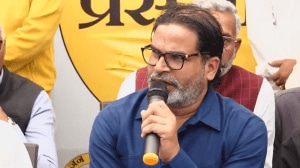Saarc says no to terror
In A significant accord on tackling terrorism in South Asia, leaders of seven SAARC countries, including from India and Pakistan, today pled...

In A significant accord on tackling terrorism in South Asia, leaders of seven SAARC countries, including from India and Pakistan, today pledged to eliminate the menace in all forms and manifestations in the region and to deal effectively with financing it.
The Islamabad Declaration, adopted at the end of the the three-day summit, hailed as a ‘‘historic and landmark’’ agreement by Pakistan Prime Minister Zafarullah Khan Jamali, followed the signing of an additional protocol to the SAARC regional convention on combating terrorism and the far reaching Free Trade Agreement (SAFTA).
The declaration also affirmed the member states’ determination to create an inclusive, just and equitable partnership for peace, development and prosperity and described the signing of the framework agreement on SAFTA as a ‘‘major milestone’’.
It also noted that satisfactory progress has been made in South Asian Preferential Trade Agreement (SAPTA).
The seven-page, 43-point declaration envisioned South Asia to be a peaceful and stable region where each nation is at peace with itself and its neighbours and where conflicts, differences and disputes are addressed through peaceful means and dialogue. It reaffirmed its pledge to promote good neighbourly relations on the basis of principles of sovereign equality, territorial integrity and national independence, non-use of force, non-intervention and non-interference and peaceful settlement of disputes.
There was also a mention of the security of small states in the declaration which said the SAARC nations were particularly mindful of the problem that arises from particular vulnerabilities that should be firmly addressed by scrupulous adherence to the UN charter.
Noting that the people of South Asia continue to face a serious threat from terrorism, the summit condemned terrorist violence in all its forms and manifestations. ‘‘We are convinced that terrorism, in all its forms and manifestations, is a challenge to all states and to all of humanity, and cannot be justified on any ground, whatsoever.
‘‘A terrorist violates the fundamental values of the UN and the SAARC charter and constitutes one of the most serious threats to international peace and security. We agree to fully implement the relevant international conventions to which we are parties,’’ the declaration said.
Condemning terrorist violence in all its forms and manifestations and noting that people of South Asia continue to face a serious threat from it, the declaration said the countries were convinced it was a challenge to all of them and cannot be justified on any ground whatsoever. The declaration said it was important to maintain the momentum of the progress on economic issues and to move towards further broadening of economic cooperation and to ensure equitable distribution of benefits of trade and cater to the special needs of the small and least developed countries by providing them special and differential treatment.
Reiterating the commitment of the Kathmandu Summit for the creation of South Asian Economic Union, it underlined that creation of a suitable political and economic environment would be conducive to the realisation of this objective.
The grouping decided to continue to safeguard their collective interests in multilateral fora on various issues. Recognising poverty alleviation as the greatest challenge facing the peoples of South Asia, it said this was the ‘‘overarching goal’’ of all SAARC activities. It was imperative to relate regional cooperation to the actual needs of the people.
The SAARC leaders emphasised the need for undertaking effective and sustained poverty reduction programmes through pro-poor growth strategies and other policy interventions with specific sectoral targets. The SAARC leaders decided to continue to collaborate with international organisations and UN agencies on the issue of poverty alleviation.
The leaders underpinned the need to establish a network of centres for higher learning, training and skill development institutes across South Asia. They decided to strengthen scientific and technological cooperation across the region as fundamental to accelerating the pace of economic and social development.
Hailing the SAARC social charter as a historic development having far-reaching impact on the lives of millions of South Asians, it stressed that issues covered under the charter like poverty alleviation, population stabilization, empowerment of women, youth mobilisation, human resource development, promotion of health and nutrition and protection of children were key to the welfare and well being of all South Asia.
The declaration asked the member nations to move towards an early ratification of the two conventions on child welfare and trafficking in women and children for prostitution.
The leaders agreed to work on a SAARC plan of action in the shortest possible time on cooperation in medical expertise and pharmaceuticals as well as in the field of traditional medicine. On the issue of environment, they welcomed the early establishment of a coastal zone management centre in the Maldives. The leaders also agreed to the establishment of a SAARC information centre in Kathmandu. —(PTI)





- 01
- 02
- 03
- 04
- 05


























